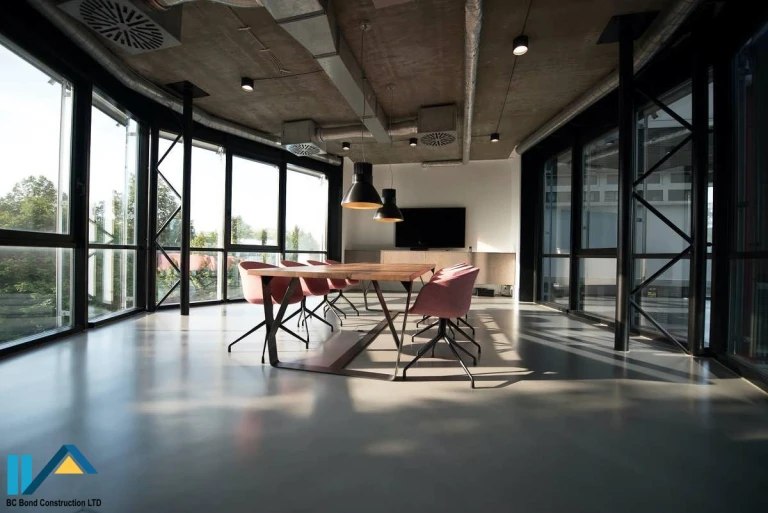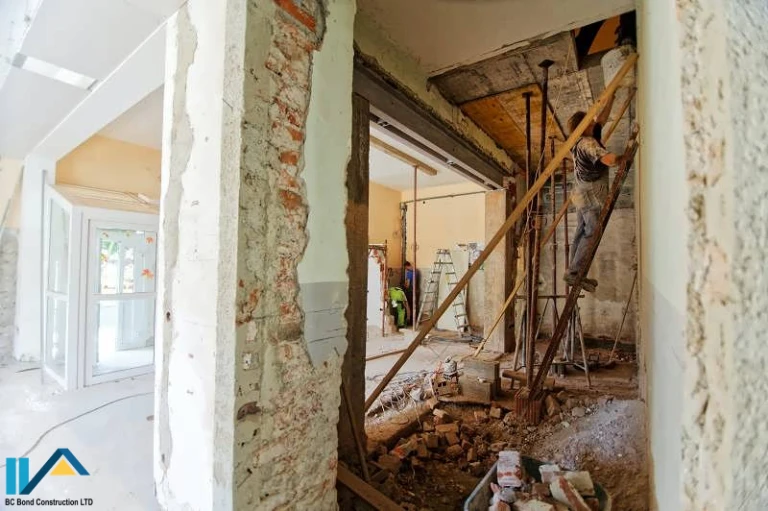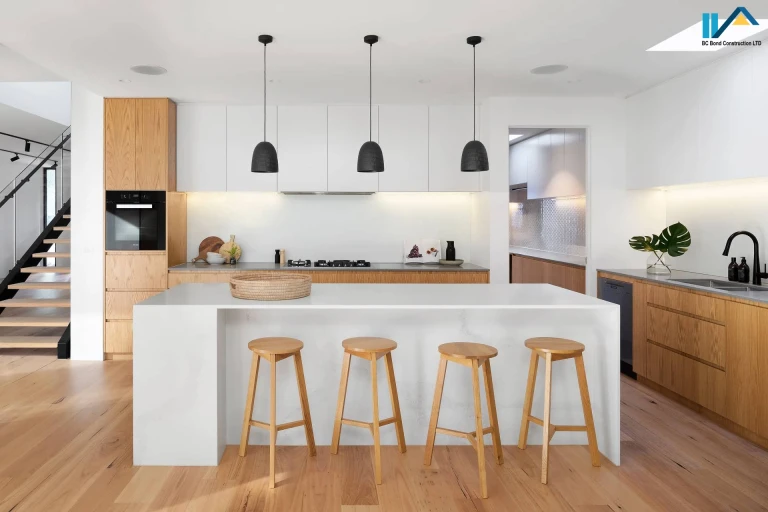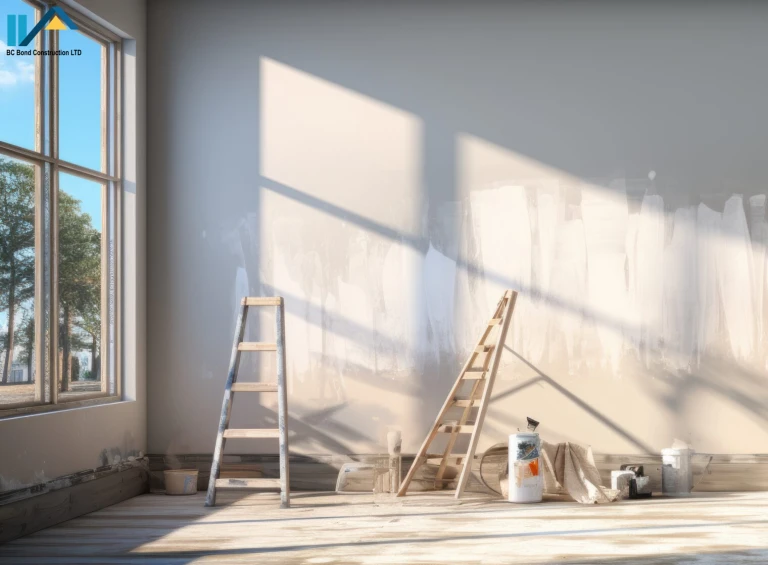Renovating your first home is a significant milestone and can be an incredibly rewarding experience. However, it can also be overwhelming if you\'re not familiar with the process. This comprehensive guide will walk you through everything you need to know about renovation services vancouver, from initial planning to the final touches. If you\'re seeking a reputable construction company vancouver, this guide will also help you make informed decisions.
Understanding Renovation Services in Vancouver
Importance of Renovation Services for New Homeowners
Renovation services are essential for new homeowners looking to personalize their space and improve their home\'s functionality and value. Key benefits include:
- Increased Property Value: Well-executed renovations can significantly boost your home\'s market value.
- Enhanced Aesthetics: Renovations allow you to tailor your home to your taste.
- Improved Functionality: Customize spaces to better suit your lifestyle and needs.
- Energy Efficiency: Modern upgrades can reduce energy consumption and costs.
Overview of Available Renovation Services
In Vancouver, there are numerous renovation services tailored to meet the diverse needs of homeowners. These services encompass kitchen renovations, bathroom renovations, basement renovations, and exterior renovations. Each service aims to enhance both the functionality and aesthetic appeal of your home. By understanding the range of services available, you can make informed decisions and choose the best options to suit your specific renovation goals and budget.
Kitchen Renovations
Kitchen renovations are among the most popular renovation services in Vancouver. They typically involve upgrading appliances, cabinetry, countertops, and flooring to create a modern, functional space. Homeowners often choose to open up the kitchen area to integrate it with living spaces, enhancing both utility and aesthetic appeal. Effective kitchen renovations can significantly increase your home\'s value and improve your daily living experience.
Bathroom Renovations
Bathroom renovations focus on updating fixtures, adding storage, and creating a spa-like atmosphere. These projects often involve replacing old bathtubs, installing new shower systems, and upgrading sinks and toilets. Enhancing the bathroom with modern designs and efficient layouts can dramatically improve comfort and functionality. Effective bathroom renovations not only enhance personal enjoyment but also increase the overall value of your home.
Basement Renovations
Basement renovations can transform an underutilized space into a valuable living area. Options include creating a family room, home office, guest suite, or even a rental unit. This type of renovation often involves addressing moisture issues, adding insulation, and installing proper lighting. By renovating your basement, you can maximize your home\'s usable square footage, making it more versatile and increasing its market value.
Exterior Renovations
Exterior renovations enhance your home\'s curb appeal and structural integrity. Projects include updating siding, roofing, windows, and landscaping. These renovations can also involve adding outdoor living spaces like decks or patios. Improving the exterior not only boosts aesthetic appeal but also protects your home from weather-related damage. Exterior renovations are crucial for maintaining your property\'s value and ensuring long-term durability.
Choosing the Right Construction Company in Vancouver
Evaluating Local Construction Companies
Selecting the right construction company is crucial for the success of your renovation. Consider the following:
- Reputation: Look for companies with positive reviews and testimonials.
- Experience: Choose a company with a track record in similar renovation projects.
- Licensing and Insurance: Ensure the company is licensed and insured to protect yourself from potential liabilities.
Questions to Ask Potential Contractors
To ensure you hire the best contractor, ask these questions:
- Can you provide references from previous clients?
- What is your estimated timeline for the project?
- How do you handle unforeseen issues during the renovation?
Initial Planning for Your Home Renovation
Setting a Realistic Budget
Setting a realistic budget is crucial for successful home renovations. Begin by determining the overall amount you can comfortably spend. Consider all potential costs, including materials, labor, permits, and contingency funds. A well-planned budget helps prevent financial strain and ensures your renovation projects stay on track. Consulting with professionals can provide accurate estimates and help prioritize your spending effectively.
Cost Breakdown of Common Renovation Projects
Understanding the cost breakdown of common renovation projects is essential for budget planning. Kitchen renovations typically range from $15,000 to $30,000, while bathroom renovations cost between $10,000 and $20,000. Basement renovations can vary widely, from $20,000 to $50,000, depending on the complexity. These estimates include materials, labor, and other associated expenses. Knowing these costs helps in setting realistic financial expectations.
Budgeting for Unexpected Expenses
Budgeting for unexpected expenses is a crucial part of renovation planning. Allocate 10-20% of your overall budget to cover unforeseen costs, such as structural repairs, delays, or additional materials. This contingency fund ensures that your renovation project continues smoothly without financial interruptions. Being prepared for surprises can reduce stress and keep your renovation on schedule and within budget.
Defining Your Renovation Goals
Prioritizing Renovation Projects
Prioritizing renovation projects ensures that the most critical improvements are completed first. Start by identifying areas that need immediate attention, such as structural repairs or outdated systems. Next, focus on projects that enhance functionality and add value, like kitchen or bathroom upgrades. By prioritizing, you can manage your budget effectively and ensure that essential renovations are completed in a logical order.
Creating a Vision Board for Inspiration
Creating a vision board is an excellent way to gather inspiration and stay focused on your renovation goals. Collect images, color swatches, and design concepts that reflect your desired aesthetic. This visual representation helps communicate your ideas to contractors and designers. A well-curated vision board can guide your renovation decisions, ensuring that the final result aligns with your personal style and preferences.
Finding and Hiring the Best Home Renovation Contractors
Researching Contractors Near Me
When searching for "contractors near me," start by seeking recommendations from friends, family, and neighbors. Use online resources like reviews and local directories to find reputable contractors in your area. Researching thoroughly ensures you choose a contractor with a solid track record and expertise in the type of renovation you need. Local contractors often have better knowledge of local building codes and regulations.
Reading Reviews and Testimonials
Reading reviews and testimonials is essential when selecting home renovation contractors. Online reviews provide insights into the contractor\'s reliability, quality of work, and customer service. Look for patterns in feedback, such as recurring issues or consistent praise. Testimonials from previous clients can offer a more personal perspective on the contractor\'s performance. This research helps you make an informed decision.
Checking Licensing and Certifications
Checking licensing and certifications is a critical step in hiring home renovation contractors. Ensure that the contractor holds the necessary licenses required by local authorities. Certifications from recognized industry bodies indicate a commitment to professionalism and high standards. Verifying these credentials protects you from unqualified contractors and ensures that your renovation complies with building codes and regulations.
The Contract and Agreement Process
Understanding Your Contract
Understanding your contract is crucial before starting any renovation project. Carefully review the document to ensure it outlines the scope of work, payment schedule, and timeline. Pay attention to terms related to changes and additional costs. Seeking legal advice can be beneficial to clarify complex clauses. A thorough understanding protects your interests and ensures a smooth relationship with your home renovation contractors.
Negotiating Terms and Conditions
Negotiating terms and conditions with your renovation contractors is essential for a successful project. Discuss all aspects of the contract, including payment terms, project timeline, and specific materials used. Be clear about your expectations and address any concerns before signing. Effective negotiation can lead to a mutually beneficial agreement, ensuring that both parties are satisfied with the terms and project outcomes.
The Renovation Process: A Step-by-Step Guide
Preparing Your Home for Renovation
Decluttering and Packing Belongings
Decluttering and packing belongings is an important preparatory step before starting renovations. Remove unnecessary items and organize essential belongings to protect them from dust and damage. Use labeled boxes for easy access and safe storage. This process not only safeguards your possessions but also creates a cleaner, safer work environment for the contractors, facilitating a more efficient renovation process.
Setting Up Temporary Living Arrangements
Setting up temporary living arrangements is often necessary during extensive renovations. Consider staying with family or friends, or renting short-term housing to minimize disruptions. Plan ahead by packing essentials and ensuring your temporary home has necessary amenities. This arrangement ensures your daily life continues smoothly and allows renovation contractors to work without constraints, speeding up the completion of your project.
Demolition and Excavating
Safety Precautions During Demolition
Safety precautions during demolition are paramount to protect everyone involved. Ensure that contractors follow proper safety protocols, including wearing protective gear and securing the site. Clear the area of personal belongings and maintain a safe distance. Proper ventilation and dust control measures should be in place. Adhering to these precautions minimizes risks and ensures a safe demolition process.
Waste Management and Disposal
Waste management and disposal are critical aspects of the renovation process. Ensure your renovation contractors have a plan for handling debris and recycling materials. Proper disposal prevents environmental hazards and keeps the worksite clean and safe. Adhering to local regulations regarding waste management ensures compliance and promotes sustainable practices, contributing to a more environmentally friendly renovation.
Carpentry and Structural Work
Framing and Building New Walls
Framing and building new walls are foundational steps in any renovation project. This phase involves constructing the structural framework that will support new rooms or features. It’s crucial to use quality materials and skilled labor to ensure stability and longevity. Proper framing also includes installing insulation and ensuring walls are plumb and level, creating a solid base for subsequent renovation tasks.
Installing Doors and Windows
Installing doors and windows is a key component of home renovation. High-quality installations improve energy efficiency, security, and aesthetics. Choose products that complement your home\'s style and meet performance standards. Skilled installation ensures proper sealing and operation, preventing drafts and water infiltration. This upgrade enhances your home\'s comfort and value, making it a worthwhile investment in your renovation project.
Electrical and Plumbing Updates
Upgrading Electrical Systems
Ensuring Safety and Compliance
Ensuring safety and compliance in your home renovation is non-negotiable. Hire licensed professionals to upgrade electrical systems and plumbing. Verify that all work adheres to local building codes and safety standards. Regular inspections during the renovation process can prevent costly mistakes and ensure your home meets all regulatory requirements, safeguarding your investment and ensuring a safe living environment.
Choosing Energy-Efficient Options
Choosing energy-efficient options for your renovation can significantly reduce long-term utility costs. Consider upgrading to energy-efficient appliances, lighting, and HVAC systems. Insulate walls, windows, and doors to improve thermal performance. These choices not only lower energy bills but also contribute to environmental sustainability. Consult with your renovation contractors to identify the best energy-saving solutions for your home.
Plumbing Renovations
Replacing Old Pipes and Fixtures
Replacing old pipes and fixtures is crucial for preventing leaks and improving water quality. Outdated plumbing can lead to significant water damage and health hazards. Use modern, durable materials like PEX or copper for longevity. Update fixtures with efficient models to enhance functionality and aesthetics. Hiring experienced home renovation contractors ensures proper installation, protecting your home from future plumbing issues and costly repairs.
Incorporating Water-Saving Features
Incorporating water-saving features during your renovation can significantly reduce water consumption and lower utility bills. Install low-flow toilets, faucets, and showerheads to conserve water without sacrificing performance. Consider smart irrigation systems for landscaping. These eco-friendly upgrades not only benefit the environment but also add value to your home. Consult with your renovation contractors to identify and implement the best water-saving solutions.
Finishing Touches: Painting, Flooring, and More
Choosing the Right Paint Colors
Understanding Different Paint Finishes
Understanding different paint finishes is essential for achieving the desired look and durability in your home. Matte finishes offer a non-reflective surface ideal for hiding imperfections. Satin and eggshell finishes provide a subtle sheen and are easy to clean, perfect for high-traffic areas. Gloss finishes are highly reflective and durable, suitable for trim and doors. Choose the right finish to match each room\'s function and style.
Hiring Professional Painters
Hiring professional painters ensures a high-quality, long-lasting finish for your home renovation. Experienced painters have the skills and tools to achieve flawless results, from surface preparation to final touches. They can offer expert advice on color choices and finishes, enhancing your home\'s aesthetic appeal. Investing in professional painters saves time and effort, ensuring a beautiful, durable paint job that stands the test of time.
Selecting and Installing Flooring
Comparing Flooring Materials
Comparing flooring materials helps you choose the best option for your renovation. Hardwood offers timeless beauty and durability but requires maintenance. Laminate is cost-effective and easy to install, while tile is durable and moisture-resistant, ideal for kitchens and bathrooms. Carpet provides comfort and warmth but may need frequent cleaning. Evaluate each material\'s pros and cons to select flooring that suits your lifestyle and budget.
DIY vs. Professional Installation
Deciding between DIY vs. professional installation for your renovation can impact the project\'s outcome. DIY projects can save money and offer personal satisfaction but require time, skill, and proper tools. Professional installation ensures expertise, efficiency, and high-quality results, especially for complex tasks like electrical or plumbing work. Assess your capabilities and the project\'s complexity to determine the best approach for successful home renovations.
Final Inspection and Quality Assurance
Conducting a Walkthrough with Your Contractor
Conducting a walkthrough with your contractor is crucial before finalizing the renovation project. This allows you to inspect the work, identify any issues, and ensure everything meets your expectations. Take notes and ask questions about any concerns. A thorough walkthrough ensures all aspects of the renovation are completed satisfactorily, providing an opportunity to address any remaining issues before the contractor\'s final payment.
Addressing Any Remaining Issues
Addressing any remaining issues promptly ensures a successful renovation completion. During the final walkthrough, list any defects or unfinished tasks and communicate them to your contractor. Prioritize resolving these issues to avoid future problems. Clear communication and documentation help ensure all corrections are made to your satisfaction. Resolving remaining issues guarantees that the renovation meets your expectations and contractual agreements.
Maintaining Your Renovated Home
Regular Maintenance Tips
Seasonal Home Maintenance Checklist
A seasonal home maintenance checklist helps keep your renovated home in top condition. Regular tasks include checking HVAC systems, cleaning gutters, inspecting roofs, and sealing windows and doors. Seasonal maintenance prevents minor issues from becoming major problems, protecting your investment. Create a checklist for each season and schedule tasks accordingly. This proactive approach ensures your home remains safe, efficient, and well-maintained year-round.
Dealing with Common Renovation Issues
Dealing with common renovation issues is part of the process. Address problems like unexpected structural damage, delayed materials, or budget overruns promptly. Maintain open communication with your renovation contractors to resolve issues efficiently. Have contingency plans and a flexible budget to handle surprises. Proactively managing these challenges ensures your renovation stays on track and minimizes stress, leading to a successful project outcome.
Planning for Future Renovations
Assessing Long-Term Home Improvement Goals
Assessing long-term home improvement goals helps plan future renovations. Consider your lifestyle changes, family growth, or evolving needs. Evaluate which projects will add the most value and functionality to your home. Prioritize essential improvements like energy efficiency or structural integrity. Setting long-term goals guides your renovation strategy, ensuring each project aligns with your vision and enhances your home\'s overall value and livability.
Saving for Future Projects
Saving for future projects is essential for ongoing home improvements. Establish a dedicated savings account and contribute regularly to fund upcoming renovations. Budget for future needs and consider setting aside a percentage of your income. Planning ahead financially ensures you can tackle new projects without stress. Consistent savings enable you to invest in significant home improvements that enhance your living space and property value.








